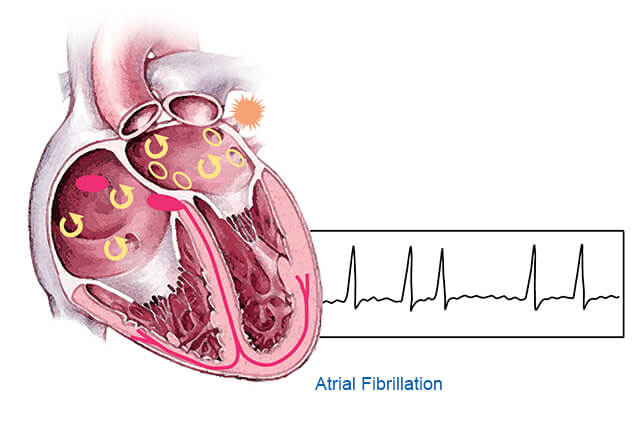
For many people, talking to a dermatologist about embarrassing skin issues can be difficult. But by being honest and asking your dermatologist questions, you can make your appointment more productive and help you achieve healthier, smoother skin.
Any new spot on the skin should be evaluated by a dermatologist to ensure it’s not something cancerous or infected. Keep reading to learn what embarrassing questions you should ask a dermatologist.
1. What’s the difference between acne and eczema?
When an infant's smooth, baby-soft skin starts to look bumpy, it can be difficult to tell if it's acne or eczema. Understanding the differences between the two conditions can help you determine the best course of treatment.
Acne is caused by excess oil (or sebum), which clogs pores and leads to pimples. It usually occurs on the face, neck, chest and shoulders, but can also appear anywhere on the body.
2. What’s the best way to get rid of acne?
While there’s no guaranteed way to get rid of acne, many science-backed treatments can improve it. For example, using oil-free or noncomedogenic cosmetics and sunscreen can help prevent clogged pores.
Washing your skin twice daily is also helpful, but be careful not to overwash. Avoid picking your skin, which can irritate and worsen pimples. And drink plenty of water, which helps maintain healthy skin cells and decrease the appearance of red marks from blemishes as they heal.
3. What’s the best way to get rid of eczema?
As the largest organ in your body, your skin does a lot of heavy lifting. It protects you from germs and repels water, but it can also be dry, itchy and red.
Avoid irritants like processed foods and keep your fingernails short to avoid injuring yourself while scratching. You should also moisturize your skin regularly. A dermatologist can recommend products that will help.
4. What’s the best way to get rid of acne scars?
Your dermatologist will create a treatment plan that works for you. They may use laser therapy or a type of acne scar surgery called subcision to reduce the appearance of depressed or boxcar scars.
You can also try using over-the-counter dark spot removers to fade discoloration from acne scars. It's also important to avoid picking at blemishes, and to wash your face often. Also, make sure to choose skin-care products that are non-comedogenic so they don't clog your pores.
5. What’s the best way to get rid of wrinkles?
A dermatologist will likely offer explanations in medical jargon, and it’s important to ask for clarification. This can help you fully understand your condition and the recommended treatment plan so that you get the results you want.
Wrinkles are a natural part of the aging process, but they can be reduced with good skincare and diet. Adding jade rollers and gua sha to your regimen can also boost the effects of anti-aging products.
6. What’s the best way to get rid of dark spots?
Dark spots are the result of over-production of melanin pigment and can be caused by sun damage, injuries, hormones and more. To get rid of them, your dermatologist will likely prescribe a bleaching ingredient like hydroquinone.
Other treatments that may help include physical exfoliation (avoid harsh scrubs) and tranexamic acid, an ingredient Dr. Pierre says can help fade discoloration by inhibiting melanin production.
7. What’s the best way to get rid of acne scars?
Luckily, dermatologists can help get rid of acne scars and other discoloration caused by past blemishes. They can recommend treatments like dermabrasion, chemical peels, lasers, and microneedling to reduce dark spots and uneven skin texture.
You can also try an elimination diet to see if certain foods trigger breakouts (though keep in mind that food causes acne differently for everyone). Avoid picking or squeezing pimples, which can lead to inflammation and scarring.
8. What’s the best way to get rid of dark spots?
Dark spots and patches can be caused by a number of things, including sun damage, hormonal changes (like pregnancy or birth control pills that cause melasma), side effects from medications, and inflammation.
The best way to get rid of dark spots is by using a prescription-strength cream. Other treatments include using a scrub that contains glycolic acid, as well as topical vitamin C serums.
9. What’s the best way to get rid of wrinkles?
Dermatologists will recommend what they feel is the best treatment for your skin concerns. But asking a few smart questions of your own can help you fine-tune your treatment plan.
For example, wrinkles caused by repetitive facial expressions can be reduced with skincare (such as a peptide serum) and lifestyle changes. Leaving your clothes in the dryer too long can also lead to wrinkles.
10. What’s the best way to get rid of dark spots?
Your dermatologist will likely recommend what they judge as the best treatment for your dark spots, based on their experience and continued education. However, there are some great DIY solutions, like lemon juice.
For example, the bleaching properties in lemons help lighten dark spots. Another effective ingredient is tranexamic acid, which helps brighten skin and inhibit excess melanin production. It's often found in medical-grade skincare products.




